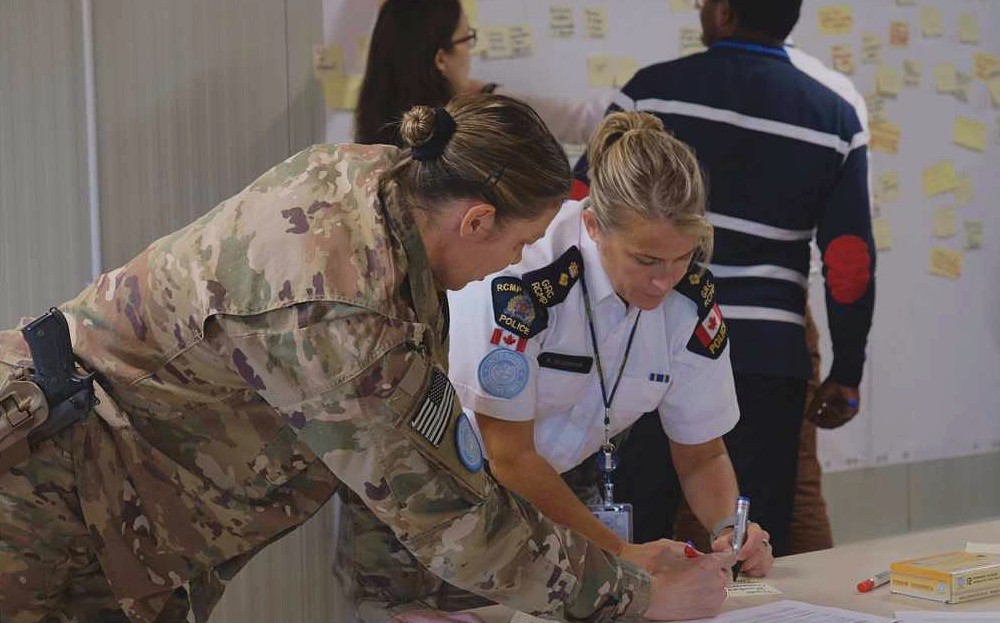Malcolm Cavanagh, student of MSc Theory and History of International Relations at LSE, 2020/21, attended an UNDPO (UN Department of Peace Operations) virtual presentation on 6 May 2021, and reports on the new peacekeeping platform and its advantages.

Image courtesy of United Nations Division of Policy, Evaluation, and Training (DPET),
Department of Peace Operations (DPO). All rights reserved.
The institution of peacekeeping, while one of the UN’s greatest contributions to global stability, has been subject to several challenges in recent decades, due in large part to the shifting dynamics present in modern low-security environments. An increase in transnational terrorism and conflicts involving several belligerent groups call for a twenty-first-century approach to peacekeeping, a gap which the Comprehensive Planning and Performance Assessment System – CPAS – endeavours to fill.
First implemented in 2018 in MINUSCA, the ongoing peacekeeping mission in the Central African Republic (CAR), CPAS provides a platform in which data is compiled by and shared among a mission’s sections, providing a basis for analysis that helps assess the impact of peacekeeping operations. Most importantly, CPAS does not promote a one-size-fits-all solution to highly variable conflicts, but instead provides an analytical framework through which unique complex security challenges can be approached. The system is already at work in eight UN peacekeeping operations less than three years after its inception.
CPAS does not promote a one-size-fits-all solution to highly variable conflicts, but instead provides an analytical framework through which unique complex security challenges can be approached.
The system’s emphasis on the continual assessment of environmental conditions, adapting objectives and plans accordingly, and assessing the impact of peacekeeping missions allows for mission operations to continuously be reviewed and strengthened. CPAS’s methodology also emphasises the empowerment of staff on the front lines of the missions’ work, engaging them in coordinated mission planning, and by enabling a greater range of actors to contribute information to the web-based platform, which tailors operational summaries to the particular interests and concerns of mission staff.
The greatest variable in the success of CPAS will be the willingness of missions, and mission leadership, to engage in and contribute to the new framework.
It is important to note that CPAS is not a silver bullet which will unilaterally improve global peacekeeping efforts. But nor is it just another acronym in the veritable alphabet soup of international conflict management – the system’s approach holds great promise to both reinforce the UN’s credibility in the eyes of host countries’ local populations, and improves the adaptability of peacekeeping missions to better suit conditions on the ground. However, the greatest variable in the success of CPAS will be the willingness of missions, and mission leadership, to engage in and contribute to the new framework. Only if this occurs will CPAS be able to improve the process and implementation of global peacekeeping efforts.
Learn about the UN Department of Peace Operations





